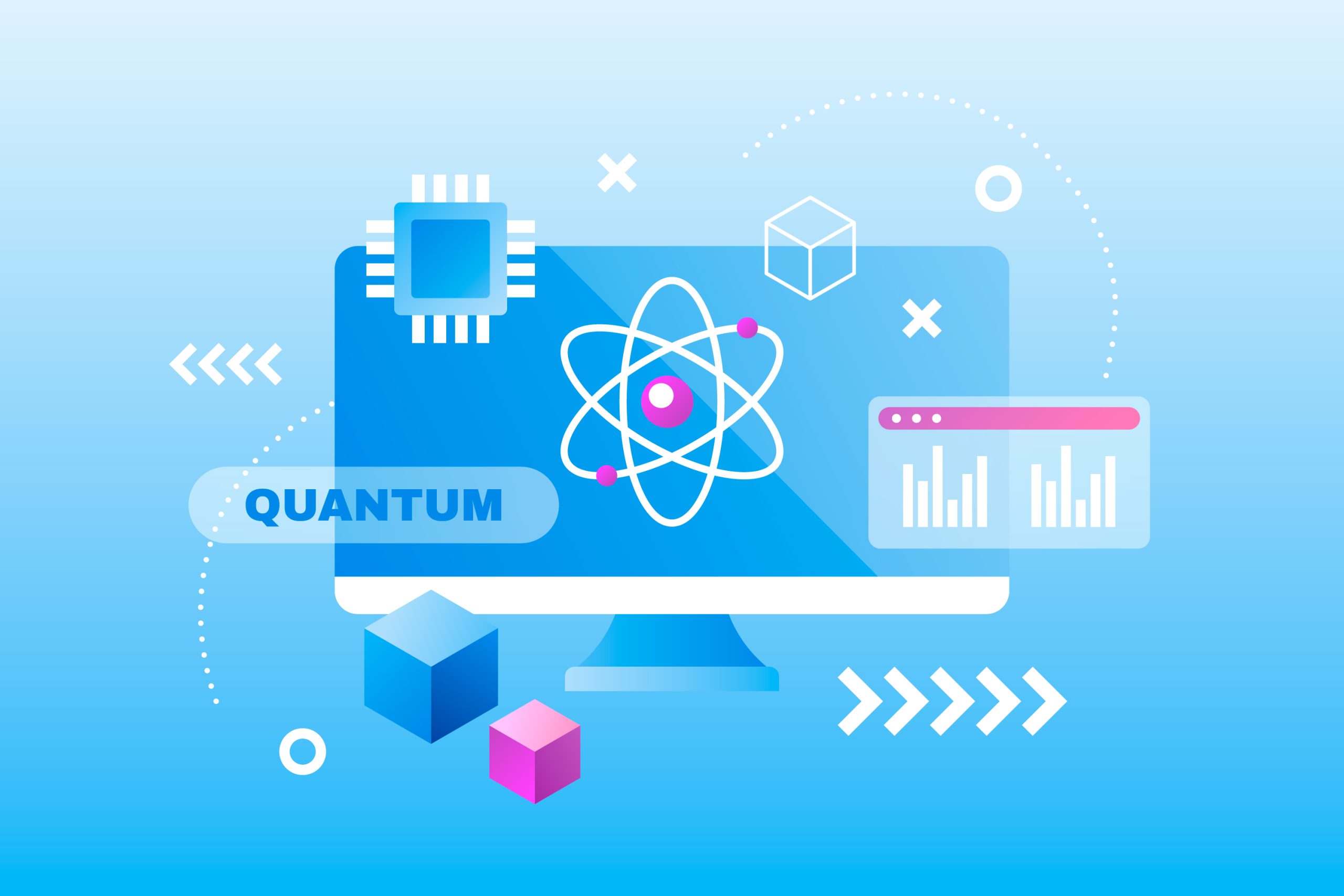At its core, quantum computing is a new paradigm of computation that leverages the principles of quantum mechanics—the science that explains how particles behave at the atomic and subatomic level.
Classical vs Quantum
Traditional computers use bits to process information. Each bit can be either a 0 or a 1. Everything from video games to financial systems runs on combinations of these bits.
Quantum computers, on the other hand, use quantum bits, or qubits. A qubit can be both 0 and 1 at the same time thanks to a property called superposition. This gives quantum computers the ability to perform multiple calculations simultaneously.
Add to this another quantum concept called entanglement, where qubits become linked and can affect each other even over large distances, and you’ve got a system that can solve certain complex problems exponentially faster than traditional computers.
Why Should IT Students Care?
Quantum computing might seem like the realm of physicists, but its future impact on industries—including cybersecurity, logistics, finance, drug discovery, and AI—will create a need for quantum-literate IT professionals.
Here’s why this matters now:
1. New Career Paths Are Emerging
From quantum software developers and researchers to quantum cloud architects and cybersecurity analysts, companies are already hiring talent in this space. Tech giants like Google, IBM, Microsoft, and startups like Rigetti and IonQ are racing to develop practical quantum systems, and they need IT minds who can bridge the gap between traditional and quantum systems.
2. Cybersecurity Will Be Redefined
Current encryption methods, like RSA, are secure because classical computers would take an unrealistic amount of time to crack them. But with quantum computing, those same methods could become obsolete. This shift will create a demand for post-quantum cryptography—a field that blends classical IT knowledge with quantum resilience.
IT students today will be at the forefront of developing and implementing new standards of digital security in the quantum age.
3. Data Science and AI Will Be Transformed
Quantum computing promises to turbocharge machine learning and data analytics. Algorithms that take hours to run today could finish in seconds with quantum acceleration. Understanding how quantum computing works can help students reimagine how they build AI models and manage big data in the future.

Core Concepts Every IT Student Should Understand
You don’t need a physics degree to grasp the fundamentals. Here are the key concepts to get familiar with:
1. Qubits and Superposition
As mentioned earlier, unlike bits that hold a single value (0 or 1), qubits can exist in multiple states at once. This allows quantum computers to process complex problems more efficiently.
2. Entanglement
This property allows qubits to become interconnected, so that changing one instantly affects the other—no matter the distance. It’s what gives quantum computers their massive parallel processing power.
3. Quantum Gates and Circuits
Just as classical computers use logic gates (AND, OR, NOT), quantum computers use quantum gates to manipulate qubits. Understanding these basic operations is like learning the syntax of a new programming language.
4. Quantum Speedup
Quantum computers excel at specific problems like factoring large numbers, searching databases, and simulating molecules. This “quantum speedup” is what makes them game-changers.
Quantum Computing in the Real World: Use Cases to Know
Quantum computing is still in its early days, but use cases are already emerging that IT students should be aware of:
1. Cryptography
Quantum algorithms like Shor’s Algorithm can break current encryption methods, while quantum key distribution (QKD) offers unhackable communication channels. The shift from classical to post-quantum cryptography will be a major challenge for IT teams globally.
2. Logistics and Optimization
Companies like DHL and Volkswagen are exploring quantum solutions to optimise delivery routes, supply chains, and traffic management—tasks that involve massive calculations and multiple variables.
3. Drug Discovery and Material Science
Quantum simulations can mimic molecular interactions at an atomic level, speeding up the process of discovering new materials and drugs. This can revolutionise sectors like healthcare and energy.
4. Machine Learning
Quantum Machine Learning (QML) is an emerging field that combines the power of quantum computing with AI. IT students with interests in data science should keep an eye on tools like Qiskit, Pennylane, and TensorFlow Quantum.
Tools and Platforms to Get Started
The good news? You don’t need access to a multi-million-dollar quantum computer to start learning. Many platforms now offer simulators and cloud access to real quantum machines.
Here are some tools and platforms worth exploring:
- IBM Quantum Experience: Offers access to real quantum computers, tutorials, and a simulator through Qiskit (an open-source quantum SDK).
- Microsoft Azure Quantum: A cloud platform integrating different quantum solutions and simulators.
- Google Cirq: A Python framework for creating, editing, and invoking Noisy Intermediate-Scale Quantum (NISQ) circuits.
- QuTiP: A toolkit for simulating the dynamics of open quantum systems.
- Quantum Inspire: Europe’s first platform giving public access to quantum processors.
These tools help bridge the gap between theory and hands-on experience, making it easier for students to explore and experiment.
How IT Curriculums Are Adapting
Forward-thinking universities and training providers are beginning to include quantum computing in their syllabi—not just as electives but as part of core technology programs.
Here’s how:
- Offering introductory quantum computing courses for CS and IT students.
- Creating interdisciplinary programs that combine physics, computer science, and engineering.
- Collaborating with companies like IBM and Microsoft to offer quantum internships and hackathons.
- Integrating quantum programming as part of advanced electives in AI or cryptography.
Even if your school hasn’t introduced formal quantum computing coursework yet, students can pursue self-learning through online certifications, workshops, and community projects.
What IT Students Should Do Today
You don’t need to be a quantum expert to start preparing. Here’s how IT students can begin their journey:
1. Strengthen Your Foundations
A good grasp of linear algebra, probability, and complex numbers is essential. These are the mathematical tools that support quantum computing theory.
2. Learn a Quantum SDK
Start with Qiskit or Cirq. These platforms are well-documented and ideal for beginners. Even basic knowledge of Python can get you started.
3. Follow Quantum Research and Trends
Stay updated by following research papers, blogs, and YouTube channels. Join communities like the Qiskit Community, Quantum Computing Stack Exchange, or local meetups.
4. Explore Career Opportunities Early
Look for internships, student competitions, and online bootcamps. Companies are more open than ever to training curious, motivated learners in quantum tools.





